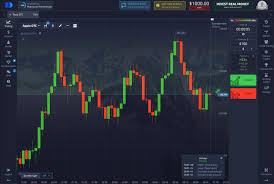
Asset Trading Schedule: A Guide for Traders
In the world of finance, timing is everything. This is especially true for asset trading, where the Asset Trading Schedule অ্যাসেট ট্রেডিংয়ের সময়সূচী can significantly impact the profits or losses experienced by traders. Understanding the asset trading schedule is crucial for both novice and experienced investors, as it dictates the best times to buy and sell. This article will delve into the various aspects of asset trading schedules, including their importance, factors influencing them, and how traders can effectively utilize them for better trading outcomes.
What is an Asset Trading Schedule?
An asset trading schedule refers to the designated times when trading occurs for specific financial assets, such as stocks, commodities, currencies, and cryptocurrencies. These schedules vary based on the asset class and the market in which they are traded. For example, stock markets have set trading hours, whereas cryptocurrency exchanges operate 24/7. Understanding the nuances of each asset’s trading schedule is vital for executing trades at optimal times.
Importance of Asset Trading Schedule
The significance of the asset trading schedule cannot be overstated. Here are several reasons why traders should pay close attention to it:
- Maximizing Opportunities: By being aware of when trading occurs, traders can capitalize on price movements during peak activity times.
- Reducing Risks: Knowing when markets are closed can help prevent traders from making impulsive decisions that could lead to losses.
- Enhancing Strategy: Traders can refine their strategies based on the trading hours of their chosen assets, optimizing entry and exit points.
- Market Analysis: A clear understanding of trading schedules can aid traders in analyzing market trends and making informed decisions.

Factors Influencing Asset Trading Schedules
Several factors can influence the asset trading schedule, including:
- Market Hours: Different markets have varying hours of operation. For example, the New York Stock Exchange operates from 9:30 AM to 4:00 PM EST, while European markets may have different hours.
- Global Events: Economic announcements, political events, and global news can affect trading hours, especially in forex and cryptocurrency trading.
- Holidays: National and international holidays can lead to market closures or altered trading hours, impacting when trades can be executed.
- Liquidity: The liquidity of an asset can fluctuate throughout the trading day, affecting how easily it can be bought or sold at desired price points.
How to Utilize the Asset Trading Schedule
Here are some strategies on how traders can utilize the asset trading schedule effectively:
1. Align Trades with Market Hours
Understanding the busiest trading hours for a specific asset can greatly enhance trading effectiveness. For instance, stocks may be more volatile during the first and last hour of trading days.

2. Stay Updated on Economic Calendars
Utilizing economic calendars can help traders keep track of significant news events that may influence asset prices, assisting in planning trades around these occurrences.
3. Leverage Technological Tools
Many trading platforms offer features to set alerts for specific trading hours and events. Leveraging these tools can help traders remain informed and ready to act promptly when opportunities arise.
4. Test Strategies in Different Time Zones
For traders involved in forex or international markets, testing strategies across different time zones can help identify the best trading schedules based on regional market activity.
Conclusion
In conclusion, the asset trading schedule is a pivotal element in the toolkit of savvy traders. By understanding and utilizing these schedules effectively, traders can optimize their strategies, capitalize on market opportunities, and potentially increase their profitability. As markets evolve, keeping abreast of changes in trading schedules and adapting strategies accordingly will be essential for long-term success in asset trading.


